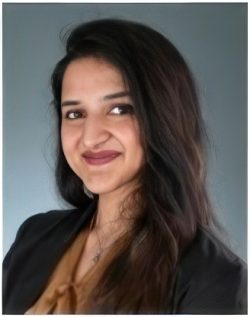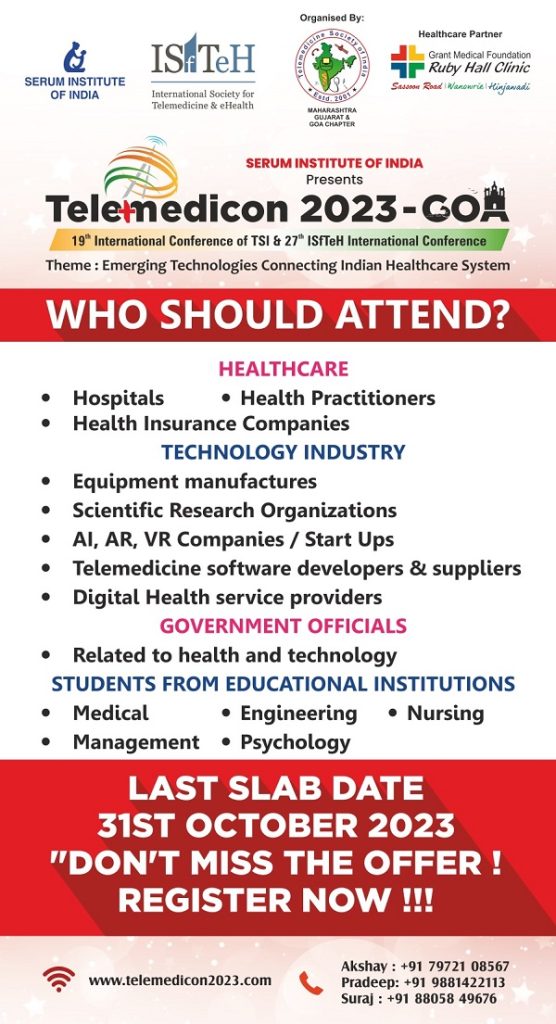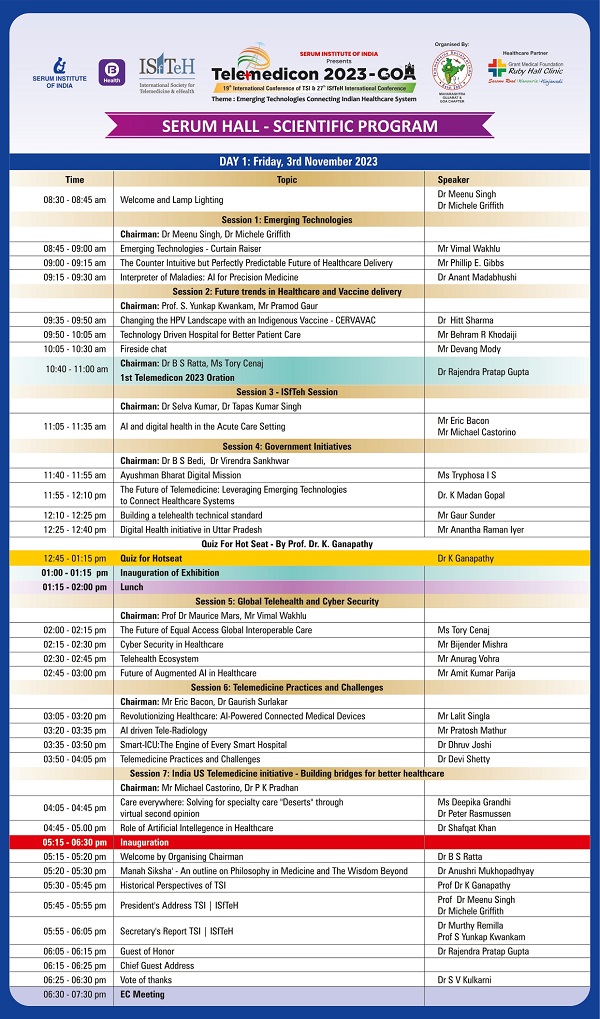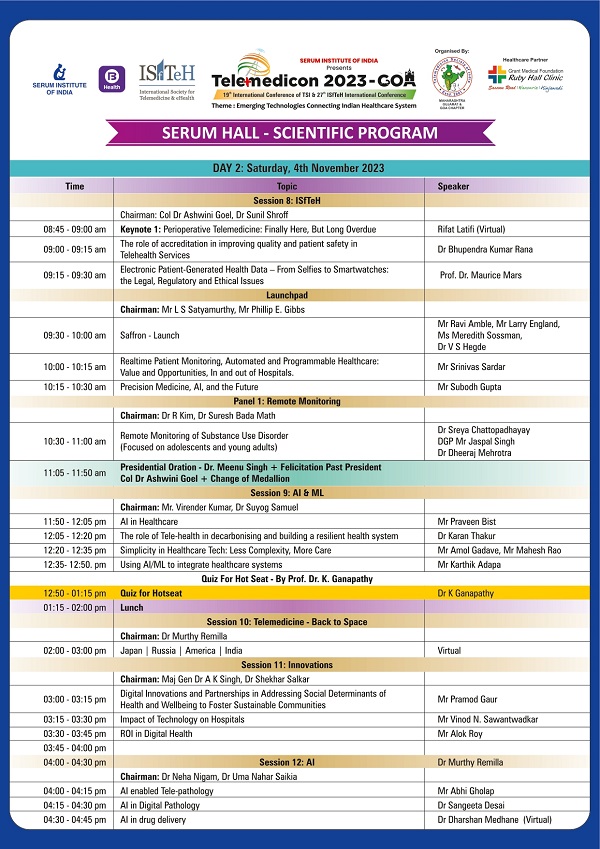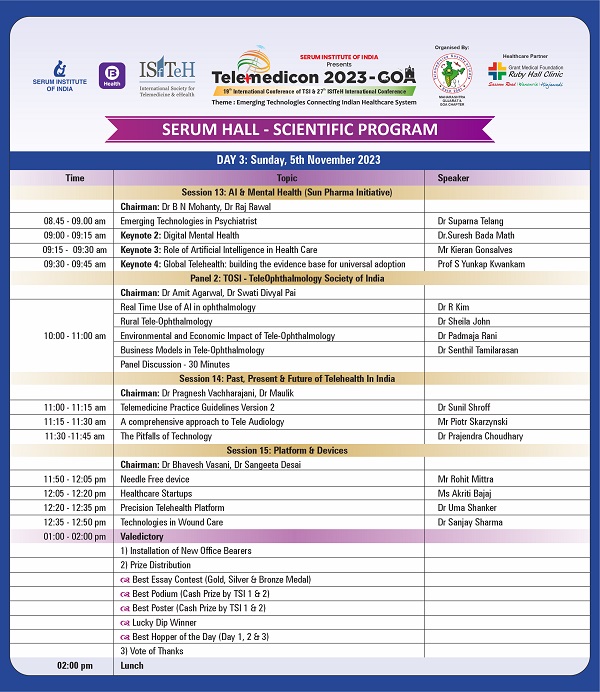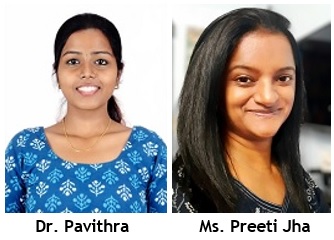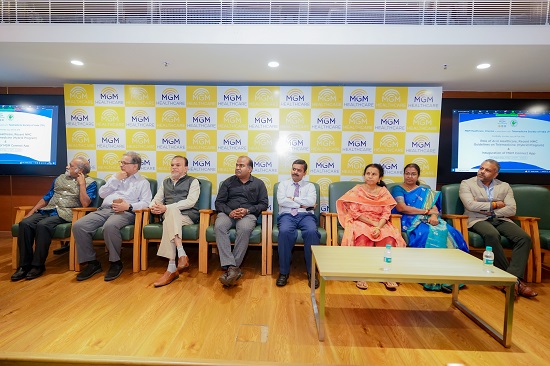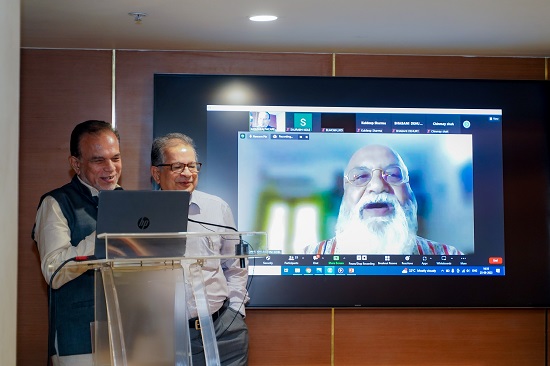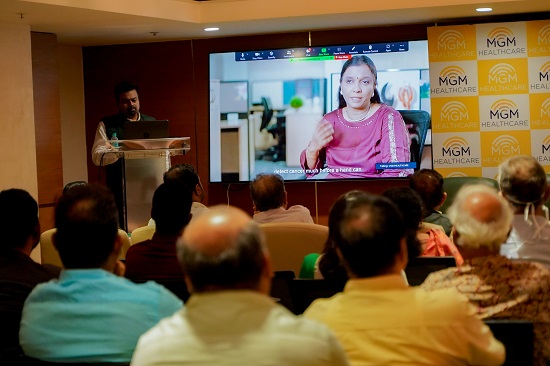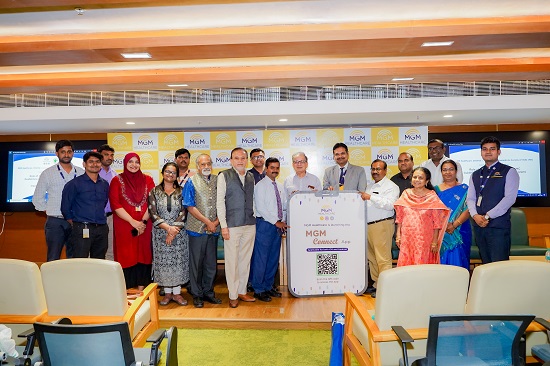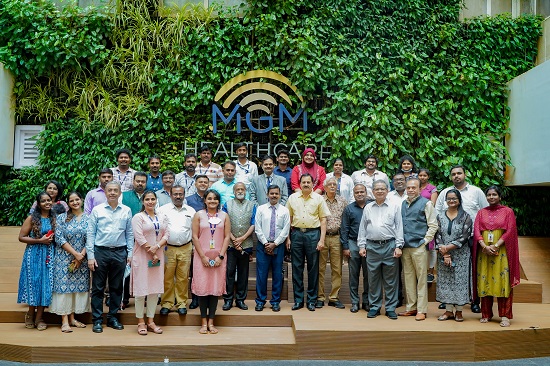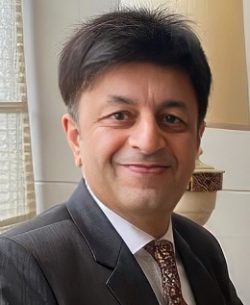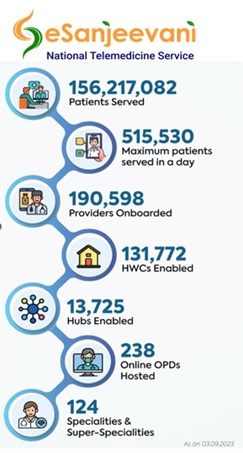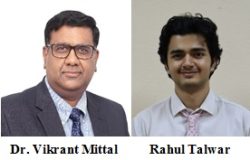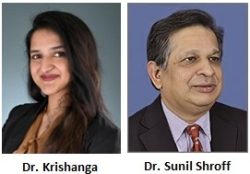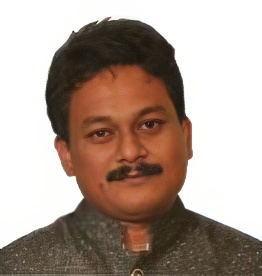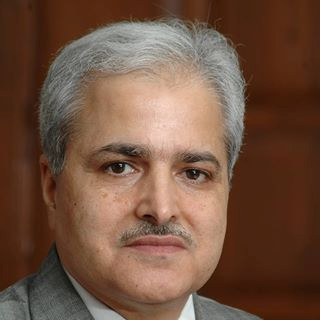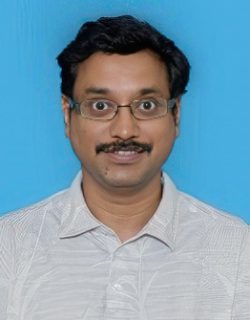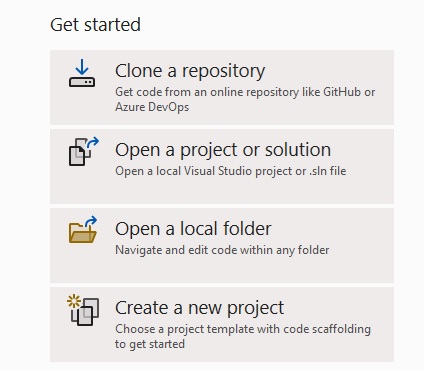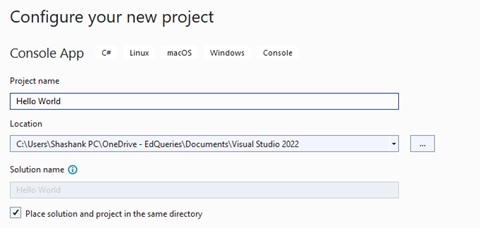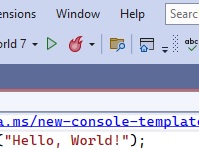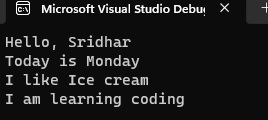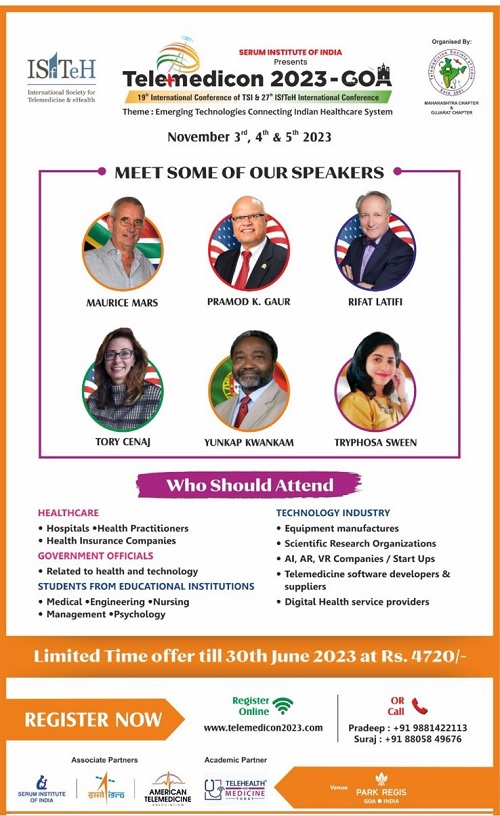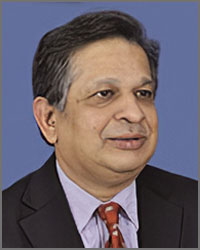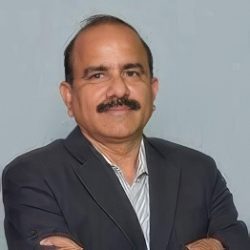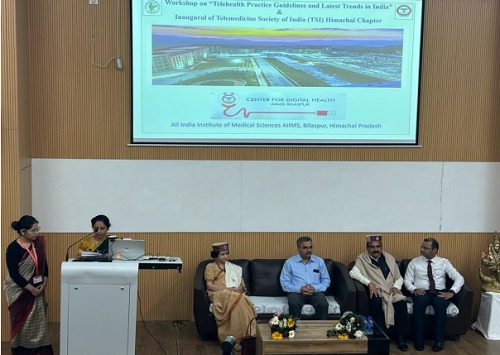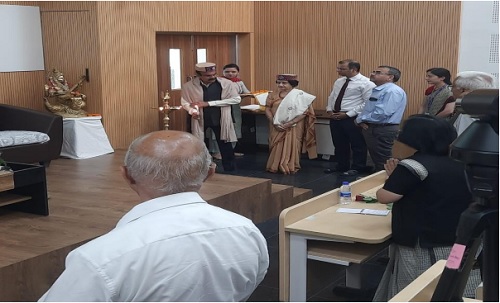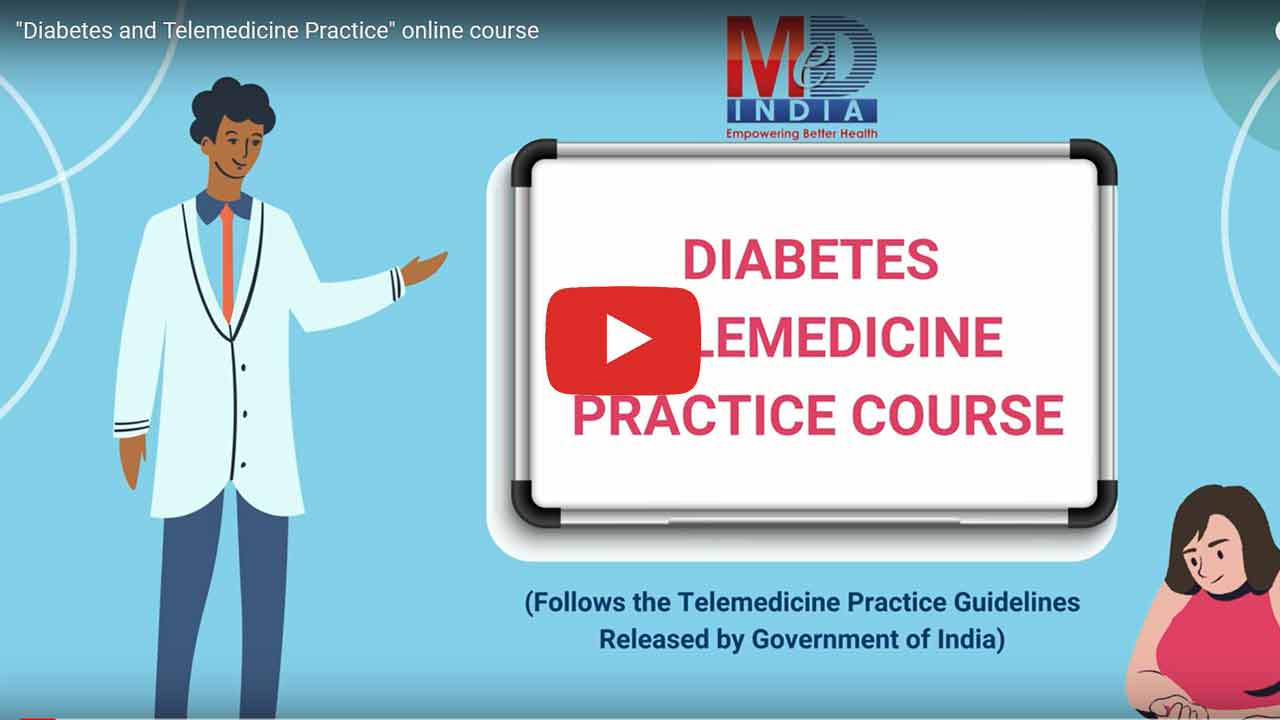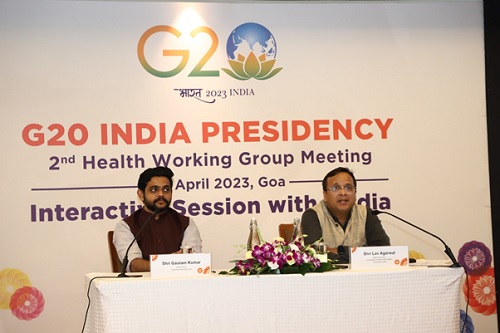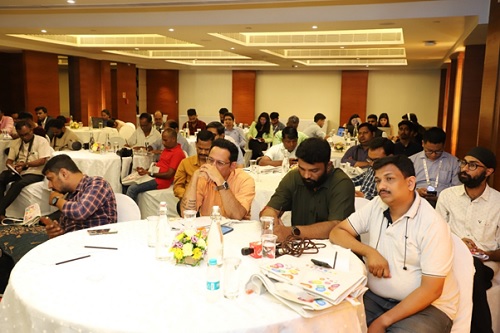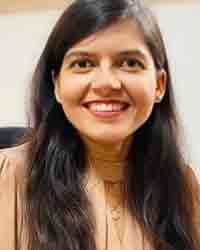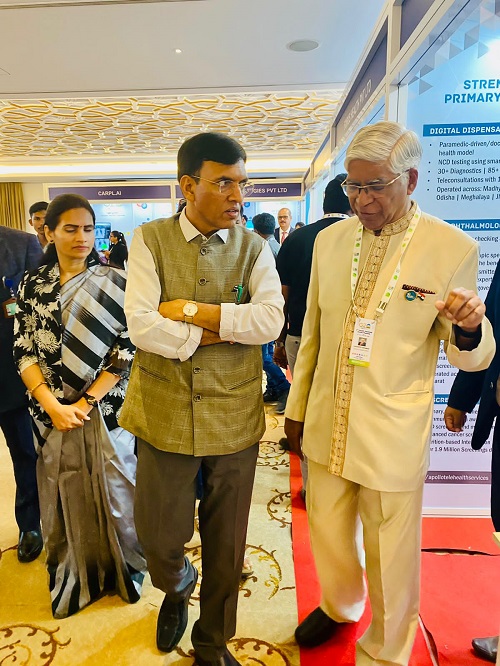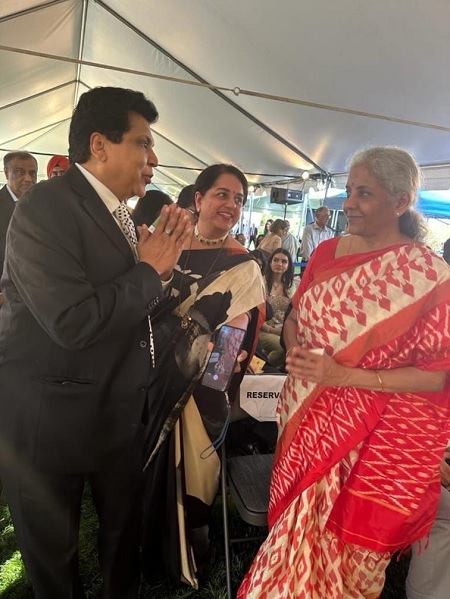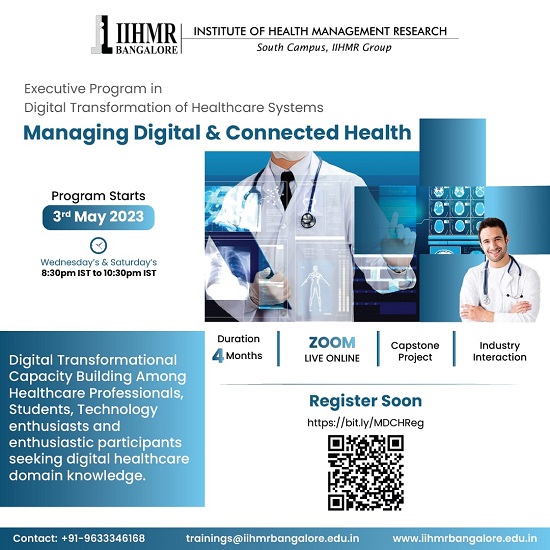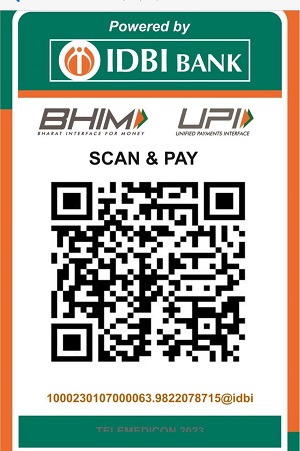Telehealth Newsletter
Official Newsletter of Telemedicine Society of India

What is New?
As we step into January, the first month of the year often symbolizes new beginnings and fresh starts. It’s a time when many of us set resolutions, recalibrate our budgets following the holiday season, and lay down plans for the year ahead.
In this edition of our newsletter, we’re excited to feature a pivotal article on the digital payment revolution in India – a development that is not only a source of national pride but also marks the beginning of an extraordinary journey.
We also have a special contribution from Dr. Murthy, who reflects on his four-year tenure as the Honorary Secretary of TSI. His insights shed light on how his efforts have contributed significantly to the society’s growth.
A Call to Action for Our Members:
This newsletter thrives on the contributions but very few of our 1100-strong member community send in any communication.
I urge each one of you to take a moment to share your experiences and insights. Remember, the efforts and time you dedicate to organizing meetings and conferences are invaluable. But without documentation, these moments are fleeting. Spending just 15 minutes to document and share your experiences in the newsletter not only preserves these memories but also ensures they are recognized and valued for years to come.
So let’s resolve to work together to keep our community’s achievements alive and visible.
Thank You
Dr. Sunil Shroff
Chief Editor
Vice President, TSI
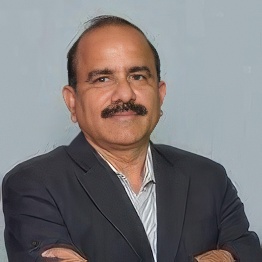
My Reflections on Telemedicine and Journey with TSI from 2019-2023
Dr. Murthy Remilla
Member and Hon Sec from 2019 -2023 – Telemedicine Society of India(TSI)
Introduction
Telemedicine represents a significant milestone in healthcare, merging traditional practices with modern Information Communication and Electronics (ICE) technologies. This integration has enabled healthcare to reach the unreached, transforming the Indian medical landscape deeply rooted in traditions dating back to Charaka and Susrutha.
Early Beginnings and Milestones
The journey of telemedicine in India began with tele-consultations, tracing back to the inception of telephony 1907.
A significant leap occurred in 1999 when Sri Ramachandra Medical College hosted a video lecture by Dr. Stephen Dretler from Department of Urology, Massachusetts General Hospital and Harvard Medical School Boston, USA, introducing the video format in medical education and. The year 2000 witnessed another landmark event when US President Bill Clinton commissioned the world’s first VSAT-enabled village hospital in Andhra Pradesh.
ISRO’s Pioneering Role
The Indian Space Research Organization (ISRO) played a transformative role in telemedicine’s growth. Although ISRO conducted preliminary experiments in the mid-90s, it was not until 2000 that a special program commenced. This initiative was significantly bolstered in 2001 with the successful link between Chennai’s Apollo Hospital and Apollo rural hospital in Aragonda, Andhra Pradesh.
Formation and Evolution of TSI
The Telemedicine Society of India (TSI) was formally established in 2006, headquartered at the School of Telemedicine and Bioinformatics, SGPGI, Lucknow. TSI’s evolution was marked by collaborations with the Ministry of Electronics and Information Technology (MeitY), various governmental and non-governmental organizations, and research institutes, further propelled by ISRO’s SatCom facility and emerging technologies.
Developments During My Tenure (2019-2023)
As the Honorary Secretary of TSI, I witnessed and contributed to several pivotal developments:
1. Telemedicine Practice Guidelines (TMPG): Issued by MoH&FW in March 2020, TMPG formation led to the creation of working groups that developed a telemedicine curriculum. Approximately 30,000 doctors and stakeholders were trained in various aspects of telemedicine, led by Dr. Sunil Shroff and other esteemed faculties including Ms.Bagmisikha Puhan, Wg Cmdr (Dr) Lavanian Dorairaj (Retd), Mr.Mayank Agarwal, Mr.Manick Rajendran, Dr.Ravi Modalli, Dr. (Gp Capt) Suchitra Mankar, Mr.P Ramkumar and Dr.Ashvini Goyal.
2. Expansion through State Chapters: The formation of 12 state chapters significantly enhanced TSI’s geographical reach and impact on telemedicine activities.
3. Membership Growth: There has been a significant increase in membership across various categories, especially among life members. A key focus is now on increasing student membership, vital for the future of TM in India. This has happened also due to incorporating online payment gateways that was initiated by Mr Maynak Agarwal and implemented by Medindia.
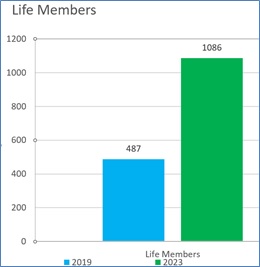
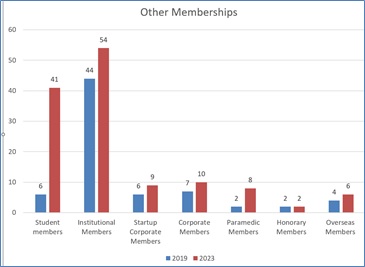
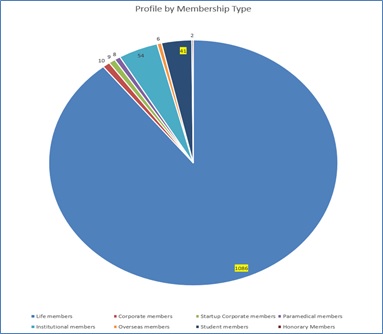
4. Bylaws Amendment: In October 2023, TSI updated its bylaws to reflect the contemporary realities of telemedicine, involving extensive online discussions and legal processes.
5. Manual of Processes and Procedures: Recognizing the need for a dynamic operational structure, TSI embarked on creating a comprehensive manual to serve as a standard operating procedure, complementing the bylaws and providing a more agile framework for TSI’s functioning.
Conclusion
The path ahead for TSI is marked by continuous adaptation and responsiveness to the evolving landscape of telemedicine. Our commitment to governance and improvement is evident in the development of the Manual of Processes and Procedures and our focus on engaging the next generation of telemedicine professionals. As of November 2023, TSI’s membership primarily comprises life members, but we are increasingly focusing on nurturing student membership, crucial for the sustained evolution and success of telemedicine in India.
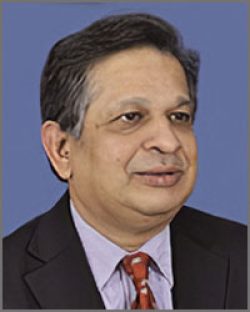
India’s Digital Payment Revolution: Paving the Way for Healthcare Transformation and Economic Growth
Dr. Sunil Shroff
Vice President, Telemedicine Society of India | Consultant Urologist & Transplant Surgeon
In the conservative and tradition-bound landscape of India, a quiet revolution is unfolding, one that has profound implications for its economy. The government’s push towards a cashless economy, coupled with a burgeoning smartphone user base and widespread internet accessibility, has fuelled this transformative shift. The catalyst of this transformation is the surge in digital payments, particularly through the Unified Payment Interface (UPI).
- The total transactions processed through the Indian Unified Payments Interface (UPI) crossed the mark of 100 billion in 2023 to reach 117.6 billion, a surge of approximately 60 percent YoY.
- The total value of UPI transactions zoomed over 40% year-on-year (YoY) to INR 182.84 Lakh Crore in 2023.
- The average ticket size (ATS) for UPI Person-to-Merchant (P2M) transactions which was INR 885 in January 2022 saw a reduction to INR 653 in June 2023. This suggests that UPI is now being increasingly used for smaller transactions.
- The Indian eCommerce industry is expected to reach US$200 billion by 2026 to surpass the United States to become the second-largest eCommerce market (after China) in the world by 2034.
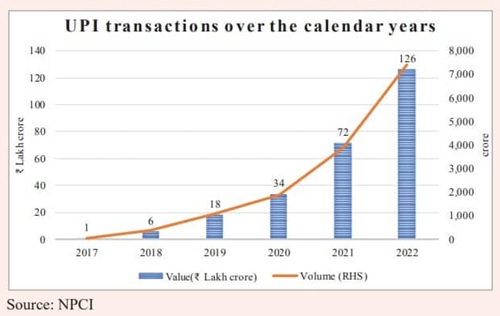
Rapid Adoption of Digital Payments
Under the aegis of the National Payments Corporation of India (NPCI), digital payments have gained unprecedented momentum. Approximately 40% of all payments in India are now conducted digitally, a testament to the country’s evolving economic practices. The NPCI’s Managing Director, Mr. Dilip Asbe, highlights this shift, noting the broad adoption of digital transactions, encompassing 300 million individuals and 50 million merchants.
Microtransactions: Changing the Face of Commerce
One of the most striking aspects of this digital surge is the prevalence of microtransactions. Small everyday expenses, like a cup of chai from Rs 10/- or buying an apparel worth Rs 1000/-, are increasingly being settled digitally. This behavioral change is significant, marking a departure from the traditional reliance on cash and underscoring the convenience and accessibility of digital payments.
The Genesis of India’s Digital Infrastructure
India’s journey towards a digital economy is underpinned by a robust digital public infrastructure, a product of strategic government initiatives and public-private partnerships. This infrastructure has outpaced those of major economies like the United States, Britain, Germany, and France in terms of the value of instant digital transactions.
The JAM Trinity: A Cornerstone of Digitalization
Central to India’s digital leap are the Jan Dhan Accounts, Aadhar, and Mobile (JAM) trinity. This trio has revolutionized the country’s economic ecosystem, promoting financial inclusion, identity verification, and widespread internet access. The Jan Dhan Yojana has led to the opening of millions of bank accounts, especially in rural and semi-urban areas, while Aadhar has streamlined identity services and financial transactions. The proliferation of mobile internet, spurred by competitive pricing in the telecom sector, has been instrumental in extending digital payments to remote corners of the country.

UPI: A Paradigm Shift in Payments
The Unified Payments Interface represents a paradigm shift in India’s payment landscape. As a public-private partnership, UPI has created an interoperable platform linking banks and payment apps without transaction fees. The system’s growth is a testament to India’s innovative approach to financial technology, promoting ease of use and widespread adoption.
Behavioral Change and Market Dynamics
The success of digital payments in India is not solely a story of technological advancement but also of significant behavioral change. Innovations like voice notification boxes for merchants have helped bridge the trust gap in a traditionally cash-reliant society. Simultaneously, the Indian market is experiencing a shift in consumer preferences and spending patterns, influenced by rising disposable incomes and the availability of finance options for premium products.
Transforming Healthcare through Digital Payments
The healthcare sector in India is experiencing a significant transformation, driven largely by the integration of digital payments. This shift is particularly evident in the rise of telemedicine and online health services, where seamless payment gateways are crucial. As consumers increasingly turn to online platforms for health consultations and the purchase of medications and consumables, the ease and security of digital transactions play a pivotal role. This change not only streamlines the process for users but also opens up new avenues for healthcare providers to expand their services efficiently. The growth of the telehealth market and online pharmaceutical sales is intrinsically linked to the evolution of consumer behavior, which is now more inclined towards digital solutions for healthcare needs.
The Global Implications and Future Outlook
India’s digital payment ecosystem is more than a national success; it’s a blueprint for developing nations aspiring to leapfrog into the digital age. The country’s experience demonstrates how technology can catalyze economic growth and offers insights into effective public-private partnerships in building efficient digital infrastructures.
Conclusion: A Nation Transformed by Digital Innovation
India’s journey through the digital payment revolution is a testament to the power of technological innovation, astute policy-making, and adaptive behavioral change in reshaping an economy. This transformation transcends the boundaries of mere financial transactions. It marks a fundamental shift in the modalities of commerce, governance, and daily life in one of the world’s most dynamic economies.
The narrative of India’s digital payments goes beyond economic metrics; it is about forging a more inclusive and accessible financial ecosystem, touching millions of lives. This revolution is setting a global precedent for digital economic transformation, and its ripple effects are profoundly redefining sectors like healthcare, making services more accessible, efficient, and patient-centric. India’s digital payment evolution, therefore, is not just an economic success story; it’s a blueprint for holistic national advancement, impacting every facet of society, including the vital sector of healthcare.
References
- https://pib.gov.in/FeaturesDeatils.aspx?NoteId=151350&ModuleId%20=%202
- https://www.npci.org.in/
- Payment Gateway Market Growth in India and Its Segmentation
ITIO Innovex Pvt. Ltd. on LinkedIn

This article is Republished (Part of this article was published in the last issue)
Geographical Spread of TSI Across India through State Chapters
Dr. Murthy Remilla
Member and Hon Sec from 2019 -2023 – Telemedicine Society of India(TSI)
To carry forward the work of Telemedicine more effectively at the ground level, TSI slowly started the formation of state chapters wherever 20 Life members enroll, which reached 8 chapters by 2018.
After serving earlier for two separate stints as Executive Member of TSI EC, I was fortunate enough to shoulder the responsibility of Hony.Secretary for two consecutive terms from Nov 2019 to Nov 2023.
1. TSI Telangana Chapter on Jan 10, 2020: One way to say, Hyderabad being a hub of many multispecialty hospitals is late in joining the TSI bandwagon. And with the onset of COVID in March 2020, there were no activities and no formal inauguration was conducted and relaunch took place on Nov 6,2022.
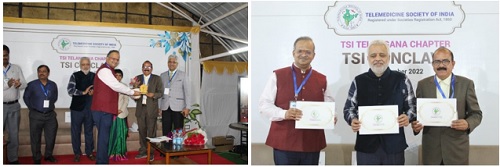
2. TSI Kerala Chapter on Jan 19, 2020: Under the aegis of TSI President Maj. Gen (Retd.) Dr. AK Singh. Amrita Institute of Medical Sciences(AIMS) Kochi with the coordination by Mr. Bijoy for a speedy enrolment and liasioning with Amrita and making it happen in a record time with record number of members on the date of inauguration itself The state chapter immediately came forward to host 2022 conference and held it in a grand way at Kochi.
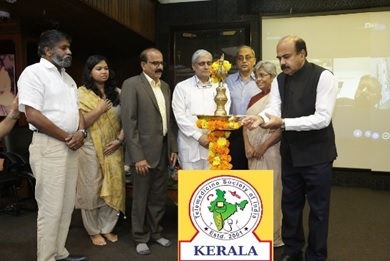
3. UP Chapter on Feb 22, 2020: As most of us are aware; Lucknow, UP is the hometown of TSI and SGPGI is the birthplace of TSI and SGPGI is the birthplace and HQ of TSI. But for reasons beyond imagination, UP was the 11th state chapter to be inaugurated at SGPGI on Feb 22, 2020. However again, due to the Corona effect the state chapter couldn’t do much of activities and remained in a dormant state.

The chapter was reinvigorated on Nov 02,2022 at Prayagraj and has since conducted good number of programmes and training camps.
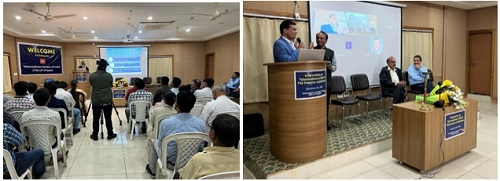
At the time of writing this, it came out to the utmost surprise that, the chapter was initially formed in 2017 itself but was somehow not known to many. In any case, it is happy to note that the UP chapter from the hometown of TM is back to active state now and is doing well.
4. Chandigarh Chapter on May 16, 2022: While the Secretary and team had to cajole, console, convince and attract prospectives to become life members, the Chandigarh Chapter was a surprise like a bolt from the blue. One day Dr. Meenu Singh, the then President-Elect and Professor at PGI Chandigarh has completed all the formalities and sent a list of enrolled members and request to recognise the formation of a new state chapter. This was a happy shock and the first chapter to be formed ever in a Union Territory. She had (has) a dedicated and enthusiastic young team of professional like Dr. Amit Agarwal, Dr. Biman Saikia etc.; and with all their coordination the chapter was inaugurated on May 16, 2022 under the aegis of TSI President Dr.PK Pradhan. Interestingly by then Dr. Meenu Singh was appointed as the Executive Director at AIIMS Rishikesh and has attended the function online, by making it a Tele-inauguration of the state chapter.

5. Gujarat Chapter on July 06, 2022: Expanding the TSI in the western zone, the Gujarat chapter was inaugurated on July 06,2022 at Ahmedabad. Incidentally this is the city of DECU, ISRO the national provider and coordinator of ISRO’s SatCom based TM services.

6. Jammu & Kashmir Chapter on Oct 29, 2022: One of the dreams of TSI has been to expand to the frontiers of the nation by reaching out to states like J&K. ISRO’s telemedicine has been in vogue in the state since 2004 with SKIMS, Srinagar as the Super specialty Hospital and at the helm of affairs. Mr. Farooq Ahmed Wani has been a crusader for the successful running of operations across 13 ISRO TM nodes in the state established by ISRO. Again, with his active role the dream of TSI came to a reality with the inauguration of J&K chapter at SKIMS, Srinagar on Oct 29,2022.
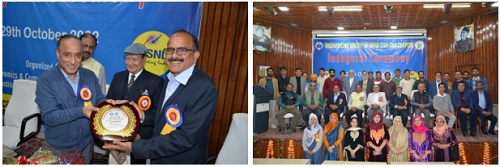
Quiet unexpectedly but most pleasantly, the state chapter within a period of 9 months from the formation, came forward to successfully host the mid-term conference of 2022 on Aug 26,2022 again at the prestigious SKIMS. The participation of several young doctors and particularly students and their presentation of high quality research papers is an added attraction in the mid-term conference.
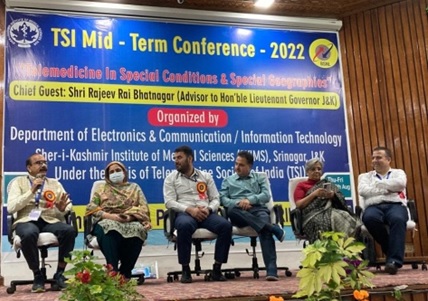
7. Uttarakhand Chapter on Nov 10, 2022: Under able guidance and aegis of Dr. Meenu Singh, President TSI and Executive Director of AIIMS Rishikesh, Uttarakhand chapter was inaugurated at AIIMS Rishikesh on Nov 10, 2022. Dr. Ankur Mittal of AIIMS has taken lead role in spreading the importance of TM and value of forming a local TSI chapter and hence in forming the Uttarakhand chapter in a speedy manner. The good news is the chapter stood as the best chapter as declared at Goa Telemedicon AGM by conducting 12/12 programmes (12 events in 12 months period) on subjects varying from Urology, Oncology and recent annual event on Laparoscopy. As said, conducting online events is not the ultimate aim and goal of TSI or state chapters but that is a minimum step in the right direction. This keeps the state unit active and dynamic in moving ahead.

8. HARYANA Chapter on Mar 04, 2023: Similar to HP chapter, the Haryana chapter also came into existence after a meeting at Kochi during the Telemedicon 2022. Dr. Arti Pawaria of Amrita Institute of Medical Sciences (AIMS), Faridabad came to Telemedicon for the first time and was so impressed with the work and potential of her desire to serve the society through Telemedicine. In addition to her headwork and sincerity, the wishes of Dr. Prem Nair, MD, AIMS and Dr. Puneet Dhar who subsequently became the first President the state chapter. The Haryana chapter was inaugurated on Mar 04,2023. Being close to Delhi which is very much crowded to even enter, but being close to the rural Haryana on the other side Haryana has a key role to play in reaching healthcare to all in the region and let’s hope for an all-round development of TSI activities through Haryana Chapter.
 9. Himachal Pradesh Chapter on May 13, 2023: With active support and lead role by Dr. Vikrant Kanwar of AIIMS Bilaspur and wishes of Dr. Vir Singh Negi, Executive Director AIIMS, Bilaspur, the HP chapter was inaugurated on May 13, 2023. This is personally special and dear to me as this is my birthday celebrated in a satisfying way with the inauguration of a new chapter in an important hilly state of India. Dr. Vikrant also came to Telemedicon2022 at Goa and joined a parallel meeting with me along with Dr Arti Pawaria of Haryana and got motivated to form a state chapter and continued the work soon after going back. Another pleasant news is the state chapter soon after formation has come forward to host 2024 Telemedicon at HP in Dharamshala (Kangda) in Nov 2024 which was ratified by the 2023 AGM.
9. Himachal Pradesh Chapter on May 13, 2023: With active support and lead role by Dr. Vikrant Kanwar of AIIMS Bilaspur and wishes of Dr. Vir Singh Negi, Executive Director AIIMS, Bilaspur, the HP chapter was inaugurated on May 13, 2023. This is personally special and dear to me as this is my birthday celebrated in a satisfying way with the inauguration of a new chapter in an important hilly state of India. Dr. Vikrant also came to Telemedicon2022 at Goa and joined a parallel meeting with me along with Dr Arti Pawaria of Haryana and got motivated to form a state chapter and continued the work soon after going back. Another pleasant news is the state chapter soon after formation has come forward to host 2024 Telemedicon at HP in Dharamshala (Kangda) in Nov 2024 which was ratified by the 2023 AGM.
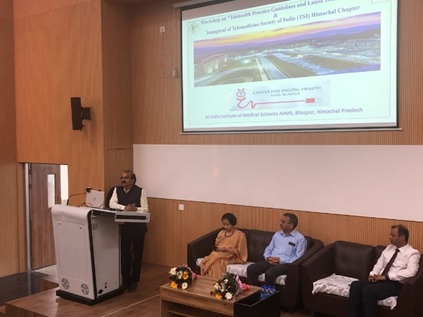
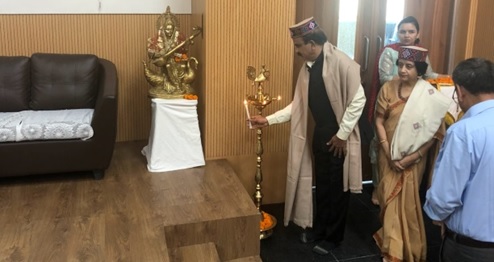
10. Goa Chapter on July 09, 2023: Telemedicon 2023 was announced to be held at Goa, initially proposed to be hosted by TSI Maharashtra Chapter under the aegis of Dr. B.S. Ratta. Subsequently TSI Gujarat chapter under the presidentship of Dr. Raj Rawal joined the event as a co-host. Like the tradition to preview the venue and review the arrangements, Mid-term meeting of TSI was held at Goa on July 09,2023. With the help and efforts of Dr. Suraj Bhosle of Goa joining the ongoing efforts by Dr. Ratta and Hony. Secretary TSI; the formation of Goa chapter also gained momentum and became a reality with the inauguration on the same day. Hence, the realisation of Goa Chapter and local team in the field, Telemedicon 2023 was successfully held at Goa during Nov 3-5,2023 in a grand way.
 11. Jharkhand Chapter on Aug 18, 2023: With active support and membership drive by Dr.Maishraj of AIIMS Deogarh, the Jharkhand chapter of TSI was inaugurated on Aug 18, 2023 under the aegis of President TSI Dr. Meenu Singh and Dr. Saurabh Varshney, Director AIIMS.
11. Jharkhand Chapter on Aug 18, 2023: With active support and membership drive by Dr.Maishraj of AIIMS Deogarh, the Jharkhand chapter of TSI was inaugurated on Aug 18, 2023 under the aegis of President TSI Dr. Meenu Singh and Dr. Saurabh Varshney, Director AIIMS.
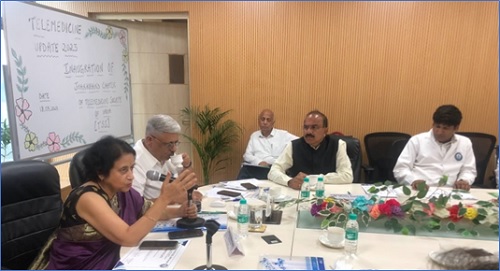
12. North East Chapter on Nov 24, 2023: Next to J&K, North East (NE) region is treated as the most important and difficult geographic terrain. The group of seven states is considered as a single block by Govt of India and for all practical purposes, Meghalaya also is treated as part of NE. Keeping these in view, and identifying the difficulty in enrolling required 20 members from each state, TSI also decided to allow the 20+ members from NE (8 states) to form a NE chapter to start with and gradually progress towards independent state chapters wherever possible. This was communicated to the Ad-hoc committee on Nov 01,2023 as a recognition to form the NE chapter. Subsequently the chapter was inaugurated at the Royal Global University, Guwahati on Nov 24,2023. Many engineering college students were addressed about the evolution and growth of TM and advances in technology aiding the growth of TM. There is a potential to from a student chapter of the university soon and this needs to be taken forward to other states and universities of the region.
Happy thing to share on this occasion is, the new chapter has come forward to conduct the 2024 mid-term conference in the North East and formal request being announced by the incoming president Dr. Bikash Rai Das and team during the inauguration itself. North East Chapter will be a role model for coordination and cooperation with members from 8 states working together.
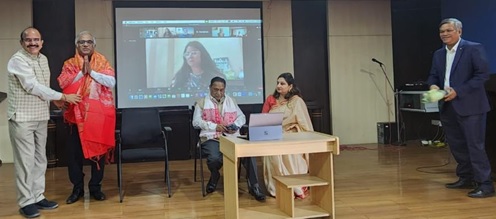
Road ahead: This leaves a major state of the east West Bengal to come up with its own state chapter and the work is in progress with the author’s discussions with potential stakeholders to rope-in the required members and probably holding the 2025 conference at Kolkata perfectly matching the ideal desire of holding Telemedicons in North-East-West and South (NEWS) mode. Let’s wish for the same to be realised soon.
Though requirement-wise Bihar stand the next state to expand TM services in a big way and stands a chance to be the 22nd state chapter of TSI if WB becomes the 21st chapter.
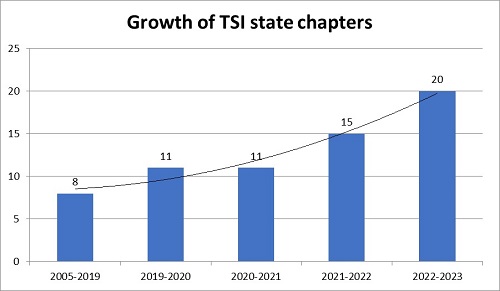 Though the growth of state chapters across the regions is increasing and pleasant to be noted, more and more activities are expected to be taken up under the aegis of these chapters with active participation by more members and particularly the younger generation. While conducting online/offline seminars and workshops or trainings is an initial and minimal activity to be taken up, the next and expected step in the journey is conducting some remote/rural camps with real usage and utilization of Telemedicine in practice.
Though the growth of state chapters across the regions is increasing and pleasant to be noted, more and more activities are expected to be taken up under the aegis of these chapters with active participation by more members and particularly the younger generation. While conducting online/offline seminars and workshops or trainings is an initial and minimal activity to be taken up, the next and expected step in the journey is conducting some remote/rural camps with real usage and utilization of Telemedicine in practice.
Let me close, with wishes for the same to happen soon, and the benefits of Telemedicine to reach the unreached making geography, location and distance a matter of irrelevance in the access to healthcare.
Launch of the Traditional Medicine Morbidity codes of Ayurveda, Siddha and Unani Chapter in International Classification of Diseaseas (ICD) 11 as Module 2
PIB Delhi
ICD 11 TM Module 2, Morbidity Codes, World Health Organization launch event will be held in New Delhi on 10th January, 2024. The data and terminology relating to diseases based on Ayurveda, Siddha, Unani systems will now be included in the WHOs ICD11 classification.
The data and terminology relating to diseases based on Ayurveda, Siddha, and Unani systems will now be included in the ICD11 classification of WHO. This effort will lead to global uniformity in ASU (Ayurveda, Unani, and Siddha) medicine as a code of vocabulary defining diseases. The World Health Organization (WHO) has developed a classification series called International Classification of Diseases (ICDs) to classify diseases internationally. The global data on diseases currently available is mainly based on healthcare practices to be diagnosed through modern biomedicine. The classification of data and terminology relating to diseases based on Ayush systems such as Ayurveda, Siddha, Unani etc. is not yet included in the WHO ICD series.
Director, Integrated Health Services, WHO Geneva was present at the premises of Ministry of Ayush today (9th January ). Secretary, Ministry of Ayush along with all senior officials and members deliberated on the efforts of Ministry of Ayush and importance of inclusion of Traditional Medicine in ICD 11. Pradeep Dua, Technical Officer Tradition, Complementary and Integrative Medicine, Integrated Health Services, WHO also participated in the discussion.
This effort will further strengthen and expand India’s public healthcare delivery system, research, Ayush insurance coverage, research and development, and policy-making systems. In addition, these codes will also be used in the formulation of future strategies to control various diseases in the society. Many other member countries of the World Health Organization are also willing to implement a similar format to include the terminology of traditional medical diseases in the ICD.
Infectious diseases like Malaria and lifestyle diseases like chronic insomnia are included in this classification. Ayurveda, Siddhas, and Unani, Vertigo Guidance Disorder (parent name), commonly recognized by the three traditional systems, as a nervous system disorder known in Ayurveda as ‘Bhramaha’ siddha as ‘Ajal Kirkrippu’ and in Unani as ‘Sadra-o-Dwar’.
Under ICD-11, there will be an international coding of such terminology and the names and data of prevalent diseases of Ayurveda, Siddha, and Unani Medicine will be notified in the code internationally through the TM 2 module. ICD11 will be released on 10th January, 2024 at New Delhi in the joint presence of officials from WHO and Ministry of AYUSH…Reade More
Dear Esteemed TSI Members, here is an excellent opportunity to share and improve our knowledge in healthcare IT. Please register with the code provided and make use of the special offer of 15% discount for TSI members.
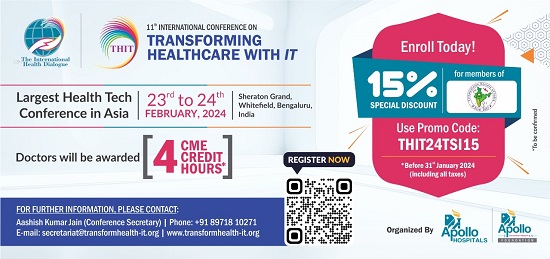
Telemedicine – News from India & Abroad
AI-Embedded Catheter:Game Changer in Preventing Bacterial Infections
American researchers have crafted an innovative catheter tube, enhanced with advanced artificial intelligence (AI) technology…Readmore
Swift Injury Severity Assessment in Healthcare Aided by AI
Swift assessment of injury severity demands consideration of multiple factors; introducing AI support for healthcare professionals in making rapid… Readmore
Timeless Language of Facial Expressions in Psychotherapy
Facial expressions play a pivotal role in psychotherapy, allowing an insightful glimpse into a person’s emotional moment. Developed by psychologist Paul Ekman…..Reademore
AI Eases Barriers in Ultrasound Brain Disease Treatment
Scientists have created an acoustic simulation technology in real-time utilizing generative AI. This innovation aims to forecast and rectify the distortion in ultrasound…..Readmore
TSI invites all the TSI Chapters and Members to submit information on their upcoming Webinar or Events (50 words), News related to Telemedicine (200 words) or short articles (500 words) for the monthly e-newsletter.Guidelines for submission to TSI Newsletter-
- Report can be from 500 to 600 words
- Report Should be relevant to Telemedicine or Medical Informatics
- No promotion of self or any product
- Avoid plagiarism
- All references should be included
- Provide any attributions
- Visuals are welcome including video links
- Send full authors name, degrees, affiliations along with a passport sized photograph of good resolution. If multiple authors only main author photo to be sent.
Submission may be sent to – tsigrouptn@gmail.com
Editors reserve the rights for accepting and publishing any submitted material.
Editor in Chief – Dr. Sunil Shroff
Editors – Dr. Senthil Tamilarasan & Dr. Sheila John
Technical Partner- https://www.medindia.net


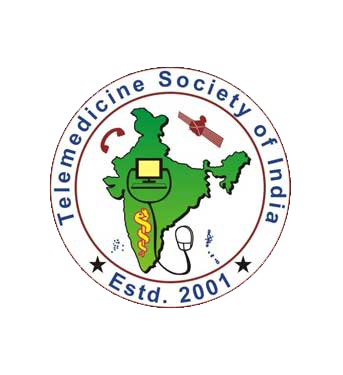


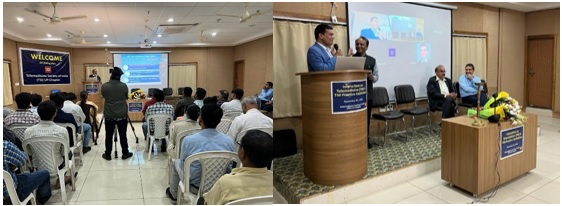
 Quiet unexpectedly but most pleasantly, the state chapter within a period of 9 months from the formation, came forward to successfully host the mid-term conference of 2022 on Aug 26, 2022 again at the prestigious SKIMS. The participation of several young doctors and particularly students and their presentation of high quality research papers was an added attraction in the mid-term conference.
Quiet unexpectedly but most pleasantly, the state chapter within a period of 9 months from the formation, came forward to successfully host the mid-term conference of 2022 on Aug 26, 2022 again at the prestigious SKIMS. The participation of several young doctors and particularly students and their presentation of high quality research papers was an added attraction in the mid-term conference.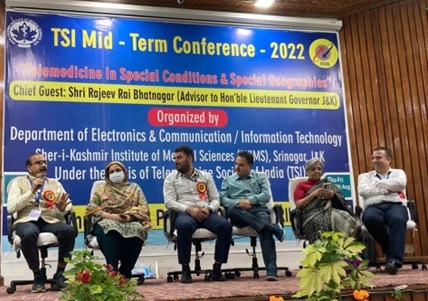

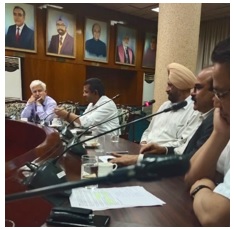


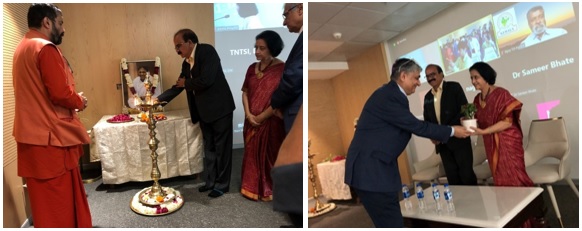

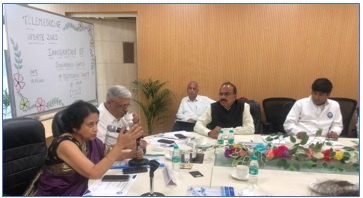
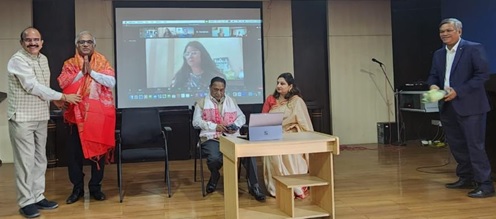
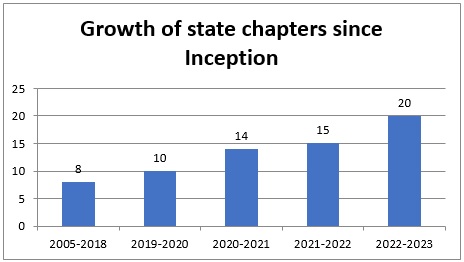
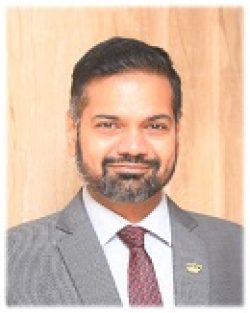
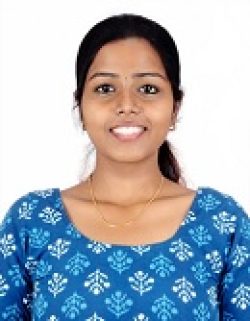

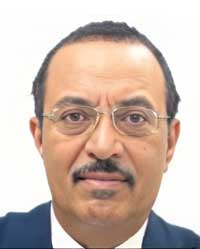
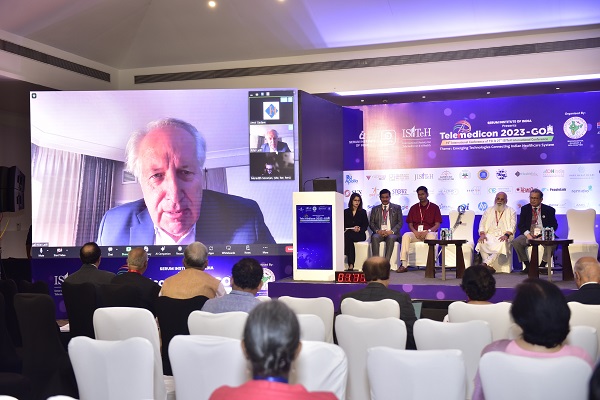
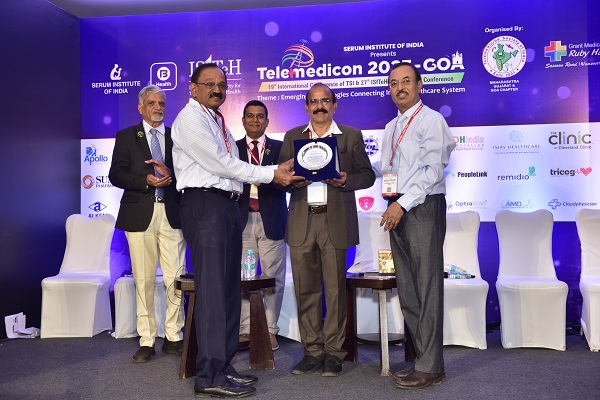

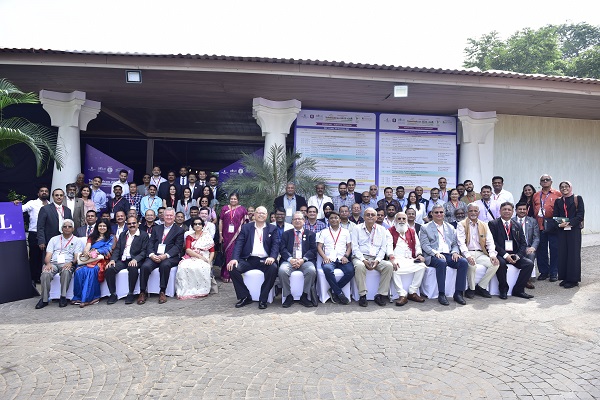
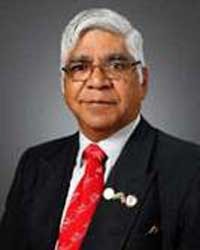 Dr.Ganapathy: Accolades, acclamations, applauses, admirations approvals, awards, cheers, commendations, encomiums, eulogies, endorsements, honours, ovations, praises, panegyrics, paeans thumbs up icons, tributes all freely flowing in all Whats App Groups, from old and young, from veterans and initiates speak for themselves. With my limited vocabulary I am at a loss for words. I would like to join every member of the TSI in thanking the Telemedicon2023 for a fantabulous event. Rattaji obviously did not behave like a Chairman. He was the First among equals. I am also pleased to see the difference of opinion in the various WA groups over the last week. The hundreds of postings indicate a personal involvement. Dissent is the basis of all democracy. Progress is not through consensus. New blood is essential . No one is indispensable. The outgoing TSI team have done a good job. I am sure the current team will steadily raise the bar. We do not want an incremental growth. It should be a radical transformation. This can only happen with a 100% participation. It is better to have loved and lost than not to have loved at all !!
Dr.Ganapathy: Accolades, acclamations, applauses, admirations approvals, awards, cheers, commendations, encomiums, eulogies, endorsements, honours, ovations, praises, panegyrics, paeans thumbs up icons, tributes all freely flowing in all Whats App Groups, from old and young, from veterans and initiates speak for themselves. With my limited vocabulary I am at a loss for words. I would like to join every member of the TSI in thanking the Telemedicon2023 for a fantabulous event. Rattaji obviously did not behave like a Chairman. He was the First among equals. I am also pleased to see the difference of opinion in the various WA groups over the last week. The hundreds of postings indicate a personal involvement. Dissent is the basis of all democracy. Progress is not through consensus. New blood is essential . No one is indispensable. The outgoing TSI team have done a good job. I am sure the current team will steadily raise the bar. We do not want an incremental growth. It should be a radical transformation. This can only happen with a 100% participation. It is better to have loved and lost than not to have loved at all !!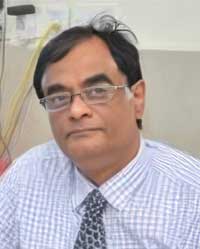 Dr. Selvakumar: Thanks to dr ratta Speakers were off high quality Introduction of dr Ganapathy for quiz was amazing Time management personally by dr ratta was super Food quality was very tasty and rich started by exacises to reduce my calories Overall the the conference was of 7 star ratting Exhibit showcasing was in par excellent ENTERTAINMENT WAS SUPER WITH FUN THANKS to dr ratta again single man show lessons to be learnt from him how to manage such conferences My sincere thanks and appreciattin to old EC team with spl thsnks to dr murthy for excellent management for the last 4 yrs Welcome to the new EC team ism sure this team will tske to greater heights with leadership of dr kim Members absence was only defect in telelmedicon confrence atl we should have double the attendance Nothing more can be done by the TSI in showcasing yearly event I thsnk all the members who attended for the grouth of TSI the meet with there support.
Dr. Selvakumar: Thanks to dr ratta Speakers were off high quality Introduction of dr Ganapathy for quiz was amazing Time management personally by dr ratta was super Food quality was very tasty and rich started by exacises to reduce my calories Overall the the conference was of 7 star ratting Exhibit showcasing was in par excellent ENTERTAINMENT WAS SUPER WITH FUN THANKS to dr ratta again single man show lessons to be learnt from him how to manage such conferences My sincere thanks and appreciattin to old EC team with spl thsnks to dr murthy for excellent management for the last 4 yrs Welcome to the new EC team ism sure this team will tske to greater heights with leadership of dr kim Members absence was only defect in telelmedicon confrence atl we should have double the attendance Nothing more can be done by the TSI in showcasing yearly event I thsnk all the members who attended for the grouth of TSI the meet with there support.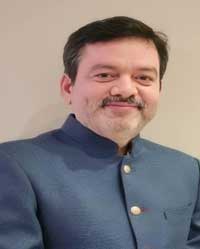 Dr. Raj Raval, Gujarat Chapter of TSI: On behalf of TSI GUJARAT CHAPTER, I’m thanking Dr.Ratta sir for involving us in organising squad although he knows he was very much able to do own his own. We learnt lot many things from him. He literally took all the pains to deliver wonderful event to us. Contents, New ideas pitching, timings, industries participation, food , cruise….everything were fabulous.
Dr. Raj Raval, Gujarat Chapter of TSI: On behalf of TSI GUJARAT CHAPTER, I’m thanking Dr.Ratta sir for involving us in organising squad although he knows he was very much able to do own his own. We learnt lot many things from him. He literally took all the pains to deliver wonderful event to us. Contents, New ideas pitching, timings, industries participation, food , cruise….everything were fabulous.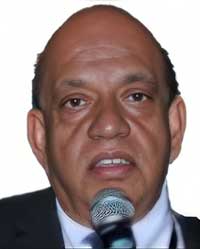 Dr. Satyamurthy: You are incredible Dr.Selva. Nice to see your remarks. Dr.Ratta was the dream boy organiser of utmost sincerity, commitment and recorded his hattrick of conducting 3 TSI conferences with grand finale of taking you all on Cruise ship which I missed. God bless our group young Margadharshaks.
Dr. Satyamurthy: You are incredible Dr.Selva. Nice to see your remarks. Dr.Ratta was the dream boy organiser of utmost sincerity, commitment and recorded his hattrick of conducting 3 TSI conferences with grand finale of taking you all on Cruise ship which I missed. God bless our group young Margadharshaks.